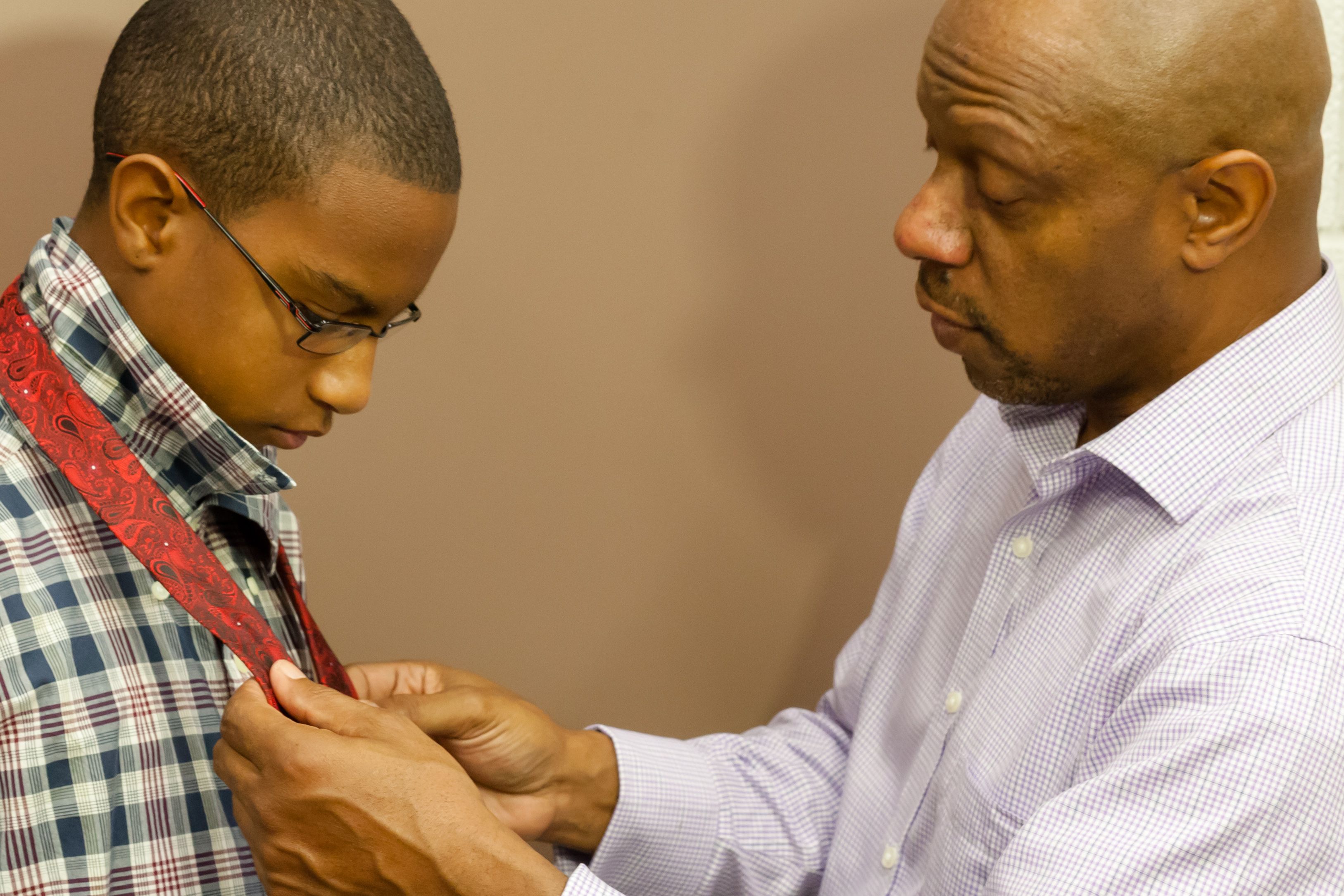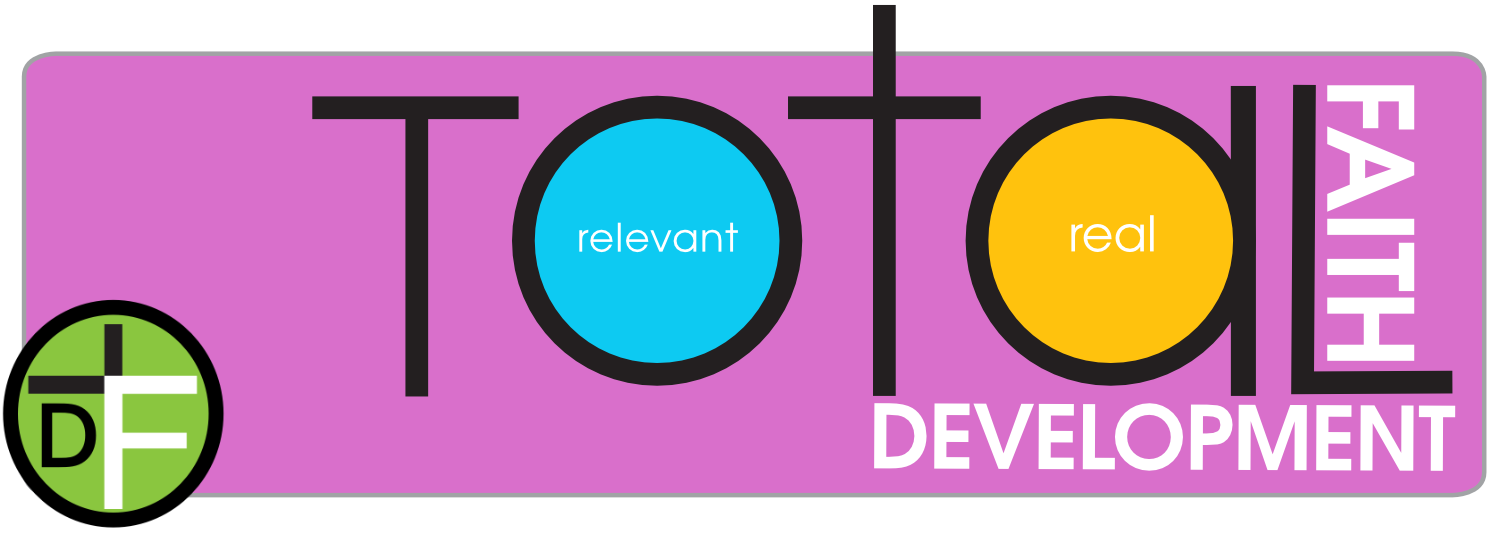
Vision
The Total Faith Development vision is to provide a family campus, promoting healthily maturing lifestyles through nurturing an environment of educational, vocational, and spiritual opportunities within the Rockford area and vicinity. The first phase of our vision is mentoring within RPS205 and community at large.
Benefits of Mentoring
Mentoring is one of the best gifts you can give to a child. Roughly one in three children in our community do not have enough positive adult role models in their lives. In the short term, mentorship builds social and emotional support, confidence and resilience, and helps ensure young people are college and career-ready.
I have no doubt that mentoring changes a child’s life for the better. But, what many don’t realize is just how mentorship impacts the mentor, too. Most of us can remember a wonderful boss, coach, or teacher who said or did something at just the right time and changed everything. Pay it forward.
Here are six reasons I believe everyone should consider mentoring a child.
- It Makes You Feel Good. Our world is complicated and can feel heavy at times. Knowing how to make a difference can be daunting. Mentoring is a simple and hands-on way to make your mark on the world. Watching a child you are helping develop into the person they are meant to be is deeply fulfilling.
- Improve Your Emotional IQ. Mentoring requires you to be aware of yourself and also to be tuned into the feelings of your mentee. Through this experience self-awareness, empathy, and humility grow.
- Increase Your Confidence. Mentoring a child can feel awkward at first. What do you say? What do you do? In time, you get to know your mentee better and become confident in your ability as the relationship grows. This confidence then spills over into other areas of your life.
- Deepen Your Skills. Lessons you have learned over your life are best integrated by teaching them to someone else. The more you recall the important experience, and impart that wisdom onto another, the further it deepens your mastery.
- Grow New Relationships. During a time of disconnection and isolation, we all learned that relationships are some of the most precious gifts we possess. Mentoring a child is also about bringing a new and fun relationship into your life.
- Change Your Perspective. One of the biggest changes our mentors report is that they have a new perspective about people from different races, backgrounds and cultures. This often motivates mentors to continue to be a part of important social change.
Whether you are male or female, single or married, young or old – great mentors come in all forms and kids in our community need you now.
Total Faith Development Mentoring Program Guidelines
- All mentors must be 18 years of age and in good standing in the community
- Suggested that all mentors complete Illinois Mandated Reporter online training, Illinois Mandated Reporter Training (dcfstraining.org)
- Mentors will follow mandated reporter protocol by notifying the appropriate school officials of any neglect or abuse disclosed
- Mentors will facilitate one mentoring session per week (two are possible) alternating weekly boys and girls.
- The team will check in at the main office with their state ID or license.
- The students will be picked up from their classroom on mentoring days. When finished, students are dismissed and walked to their class to prepare for bus departures.
- There are opportunities for program students to serve as peer mentors.
- Mentors will arrive with their lesson plan and topic, however, will be sensitive to students needs and reserve the right to add/change topic discussion.
- Mentors will assist and support the programs of classroom teachers and school staff
- Mentors will address students by the name they choose, not clichés.
- Mentors will state clear rules for mentor class at beginning of each session
- It is recommended that Mentors (especially those facilitating) should arrive 30 minutes before each session. The classroom usually needs setting up with folders placed out.
- Mentors will start and end class in a timely and respectable manner.
- Mentors will direct students with truth, not opinions.
- Mentors will encourage students to speak freely and encourage esteem by using positive affirmations.
- Mentors will listen contextually to what students are saying not only the words they are using.
- Never give personal gifts to students.
- Never accept a personal gift from a student.
- Never make a promise to student that you will keep a secret.
- Do not ask students about their parents, relatives or home life.
- Do not agree or disagree with decisions they reveal their parents have made.
- Do not share personal information, including social media contact with student or respond to student who initiates contact with you.
Mentoring Program RPS 205 Volunteer Expectations
- Be on time. Please notify the teacher/counselor/school contact if you cannot attend at your scheduled time.
- Communication is key to success of a program. Do not hesitate to email, text, or call to discuss any problems or concerns.
- Support the programs of the classroom teachers and school staff. The volunteer’s role is one of assistance.
- Be a positive role model for students through your good attitude, behavior, language, and dress. Let your conversations show respect for others, and avoid language that may be perceived as discriminatory, sexist, or offensive.
- Be respectful of our students’ diversity of culture, religion, and background. Don’t assume the students celebrate the same holidays (Christmas, Easter, Halloween, or even birthday). Also, don’t assume the make-up of the student’s “family” (size, race, or gender). Practice correct pronunciation of the students’ names if they are unfamiliar.
- Be confidential. Respect the confidential information you may learn about the academic performance, behavior, and personal information of the students you work with. Discuss concerns with the teacher or volunteer coordinator, not with other volunteers, parents, or friends.
- Notify the teacher, principal, or volunteer coordinator if a student tells you something, or you notice something that may indicate their safety is at risk or they are in emotional distress. Staff will do the necessary follow-up and reporting.
- Protect privacy. Do not ask for a student’s address or phone number, and do not share yours with students.
- Maintain contact only as approved with student or students’ family outside of mentor session.
- Photos of students are private. Please do not take pictures of students. If you are provided a photo of a student, please do not share the photo on social media, photo libraries, or other forums that are accessible to others.
- Ensure positive closure. If you plan on ending your volunteer involvement before the end of the year, please notify your teacher and the volunteer coordinator. If you are working with a student, be clear about your final date with them, and let them know you have enjoyed working with them.
Program Contact Information TFD ED/Mentor Coordinator: Renade Cossey
